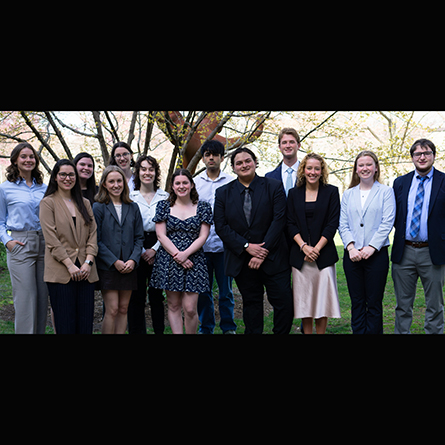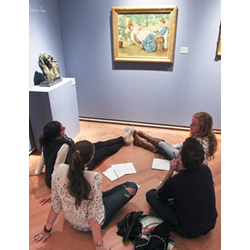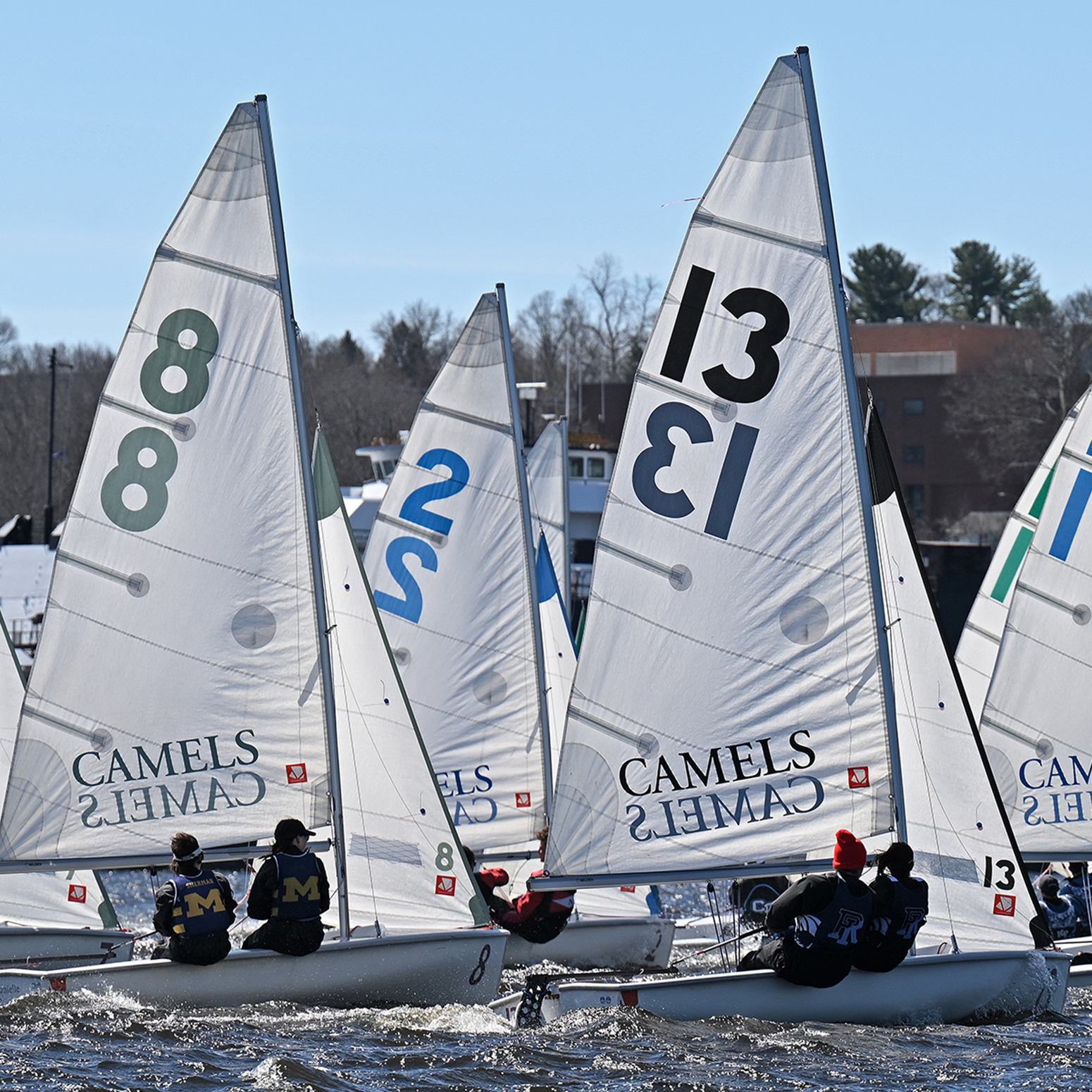
Small classes, big ideas: First-year seminars immerse new students in the liberal arts

In a residence hall on a crisp September morning, 16 first-year students are contemplating the meaning of human existence.
Philosophy Professor Simon Feldman is leading a discussion on the origins of the universe. As the students toss out theories – the Big Bang happened when a ball of dense matter exploded, says one; that matter must have come from somewhere, says another – Feldman scribbles wildly on a chalk board, nodding and gesturing for the students to keep going.
“I think about this all of the time. Where did that speck that started the Big Bang come from and how was it contained?” asks Hannah Boal ’17. She groans as the weight of the world – or at least of its origins – rests on her intellect.
The theories get more complicated – perhaps the Big Bang is actually an infinite series of big bangs and big collapses, or maybe before the Big Bang there actually was absolutely nothing, and is that even possible? “I need more coffee,” says one student. “If the series of big bangs and big collapses is infinite, how is that different from an infinite God?” asks Isabel Guhde ’17.
Feldman grows increasingly animated as several students grab their heads in the hands, as if to shake the perplexity out.
“That is learning happening,” he says.
Feldman’s course, “The Meaning of Life,” is one of 36 first-year seminars available to new students. With tantalizing titles like “Crime and Detection in Popular Fiction” and “From the Holy Land to Disneyland: Pilgrimage in the Modern World,” the seminars are small, discussion-based, writing-intensive courses designed to immerse new students in the liberal arts experience.
Ashley Giordano ’17 says she was excited about the opportunity to delve deeply into a specific subject of interest to her. In high school, she learned about the AIDS epidemic and watched “And the Band Played On,” a 1993 television docudrama about AIDS research, in health class. The aspiring theater major wanted to know more and jumped at the chance to take Theater Professor Virginia Anderson’s “The AIDS Epidemic in Theater and Film.”
In the class, Giordano and a small group of other students meet with Anderson on Tuesday evenings to screen films like “How to Survive a Plague,” “Common Threads: Stories from the Quilt” and “Philadelphia.” The group meets twice a week to discuss the films.
A recent discussion of the 1985 Emmy-winning TV movie “An Early Frost” touched on Hollywood’s portrayal of gay characters, the culture of fear surrounding the AIDS epidemic, the roles and responsibilities of major media and the importance of symbolism in film.
It’s a very challenging course, says Anique Ashraf ’17, an aspiring art and international relations double major. He says he loves “Rent” and wanted to further explore the intersections between AIDS history and cultural views of homosexuality. “I’m gay, and a lot of the history we explore is personal for me,” he says.
With enrollments capped at 16, the seminars help students get to know a professor in an intimate setting during their first semester on campus. Many classes even take trips together. One class that explores the “Art and Ethics of Garbage” analyzed American impressionist paintings on display in New London’s Lyman Allyn Art Museum and traveled to an environmental art park to help artists install site-specific works. Another class is visiting a local mill with a history that dates back to the 1650s as it explores the colonial and antebellum history of the United States. And Anderson’s class will travel to the Big Apple to visit the New York Public Library’s “Why We Fight: Remembering AIDS Activism” exhibit.
The interdisciplinary nature of the seminar course topics encourage students to draw connections and bring to the discussions experiences from other courses. And there is truly something for everyone, with a seminar that explores environmental justice issues related to advances in modern chemistry, one that teaches students to solve problems of increasing complexity through the design and programming of robots, and even one that investigates the connections between politics and modern architecture, just to highlight a few.
“We want to find topics that students are interested in, that get them thinking” says English Professor Philip Ray, who teaches “Crime and Detection in Popular Fiction.”
Hannah Boal says that is exactly what drew her to Feldman’s “The Meaning of Life.” “I saw this class and thought, ‘That is what college is all about – figuring out what you believe and what you don’t believe and who you are,’” she says. “I thought that was a great way to start college.”
September 26, 2013
